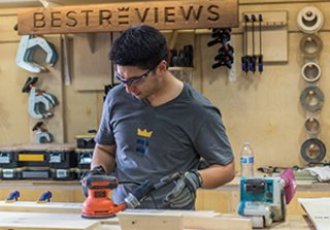We recommend these products based on an intensive research process that's designed to cut through the noise and find the top products in this space. Guided by experts, we spend hours looking into the factors that matter, to bring you these selections.

With the large variety of nuts, bolts, and other fasteners in every home, vehicle, and workplace that might need to be removed, adjusted, or replaced, everyone needs a good wrench set.
Wrenches are indispensable for dozens of jobs around the house and yard. If you’re an infrequent user, you might do fine with a budget wrench set, and there are plenty available. If you’re looking for something more professional, you have an equally wide choice.

All wrenches do essentially the same job: they loosen and tighten nuts, bolts, and other fixings. However, there are differences between wrenches that you need to know about before selecting one for a job.
The box wrench encloses the nut or bolt much more securely, and the ratcheting box wrench is an improvement on this design. The ratchet allows you to rotate the wrench so you can continue working without removing it.
The combination wrench is open on one end and boxed on the other. It’s popular because it can be used easily in a number of situations.
The open-ended wrench is arguably the most common wrench, and it is certainly the most simple. To use it, you slot it over a nut or bolt and turn it. The problem with open-ended wrenches is that they tend to slip off under pressure – as many a scraped knuckle will testify. Because an open-ended wrench fits from the side, it can be used where access is restricted.
Another common tool is the adjustable wrench or pipe wrench. With its expanding (and sometimes reversible) jaws, a single adjustable wrench can do the work of several open or box wrenches.
The drawback is that the adjusting mechanism can get in the way, and the jaws have a tendency to work loose, causing slips. You could inadvertently round the corners off the nut or bolt, too. Still, an adjustable wrench offers lots of versatility, so consider one for every toolbox.

All good wrenches are made from a chrome vanadium alloy. They’re almost always drop forged, which means they are pressed out of a molten ingot under very high pressure. Chrome plating is common, though some have a black magnetite finish. Both chrome plating and black magnetite resist rust nicely.
Since the metal in all good wrenches is more or less the same, what are the differences between products, and what should you be looking for?
Your most important decision pertains to the range of wrenches you need. We’ve seen sets with as few as five and as many as thirty pieces. You also need to decide whether you want inches, metric (mm), or a combination of both.
After being forged, wrenches need further finishing to remove excess material and mold marks. The quality of this finishing makes a difference in how accurate the wrench is. Cheaper wrenches tend to be looser with a weaker grip and a greater chance of slipping.
With ratchets, you don’t want to have to move the wrench very far to reset it. This is called the ratcheting arc, and the smaller the arc, the better.
The more leverage you have, the easier it is to apply torque (turning force) to the fastener, whether you’re loosening or tightening. However, there are times when your workspace may be restricted. Short (stubby) wrenches are one solution in this scenario; offset wrenches are another.
It can be infuriating trying to find a missing wrench at the bottom of your toolbox! You may thank yourself later if you choose a wrench set that includes storage.
You can get a budget wrench set for around $25 that will have a couple dozen tools. At the other end of the scale, you can get a high-quality set from a well-known brand that might include half as many wrenches for five times the cost.
So which price is right for you? If you’re an occasional wrench user, a low-cost wrench set – plus an adjustable wrench – will probably cover all the tasks you’ll ever need do. If you’re going to use your wrenches regularly, however, it’s worth investing a bit extra.

A. SAE stands for the Society of Automotive Engineers. SAE tools are measured in inches and fractions of an inch. You might also see ASME, which is the American Society of Mechanical Engineers, on wrench sets. These acronyms reflect standards used by different bodies.
The only additional marking you might see on metric wrenches is ISO. This is the International Standards Organization, and it means the wrenches conform to a particular degree of accuracy.
A. Almost all wrenches are made of tool steel, a carbon steel alloy. The exact chemistry varies depending on the purpose of the finished item. Some can be brittle, so the alloy used for wrenches usually includes chrome and vanadium. These make for a very hard tool, but one that has ductility – a little bit of give. They’re less likely to fracture under pressure. Chrome also resists rust, although many wrenches have chrome plating for further protection.
Get emails you’ll love.
Learn about the products you’re wondering if you should buy and get advice on using your latest purchases.
